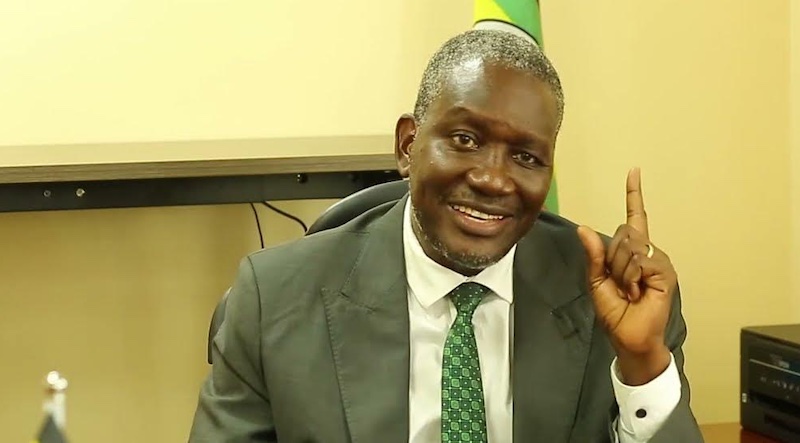
A quiet power struggle inside Uganda’s ministry of Water and Environment has spilled into the open, raising questions about ethics, favouritism, and the blurred lines between public service and political loyalty.
At the center of the storm is Eng. John Mary Vianne Twinomujuni, a retired commissioner who, despite reaching the mandatory retirement age, has remained in office under a contested three-year contract extension.
What began as a procedural dispute has now evolved into a broader test of accountability within one of Uganda’s most vital ministries. The controversy erupted after Permanent Secretary Dr Alfred Okot Okidi recommended Twinomujuni’s reappointment as Commissioner for Urban Water and Sewerage Services, despite what petitioners say was the availability of eleven qualified assistant commissioners who could have filled the post.
In an affidavit dated October 3, 2025, Head of Public Service Lucy Nakyobe Mbonye confirmed Dr. Okidi’s recommendation and noted that it came despite the pool of internal talent already in place.
Petitioners now argue that his decision violated the Public Service Standing Orders (2021), which allow the re-employment of a retiree only if the role requires “special skills” and the pensioner is “the only suitable candidate available.”
The case has become a flashpoint for growing unease about the bending of public service rules to accommodate powerful figures. In their petition, applicants accuse Dr Okidi of undermining fairness and institutional succession, a breach they say erodes morale within the ministry.
“Every previous commissioner before him retired and handed over,” one petitioner said, citing a list that includes Eng. Joseph Oriono Eyatu, Eng. Christopher Tumusiime, Eng. Richard Cong, Eng. Dominic Kavutse, Samuel Otuba, and Joseph Epitu, all of whom exited in accordance with the law. Dr Okidi, in his defense, said his recommendation was made “in good faith” and that blocking Twinomujuni’s contract would “gravely prejudice public service delivery” and create a “vacuum in leadership.”
But critics see a pattern, one that privileges continuity over fairness and exposes gaps in oversight between the Public Service Commission (PSC) and the Solicitor General’s office.
A Legal Maze Deepens
The dispute intensified after a September 25, 2025, letter from Solicitor General Pius Perry Biribonwoha to the PSC. The advisory, issued just a week before a High court ruling, stated that “in the absence of any injunctive court order,” there was no legal barrier to completing Twinomujuni’s reappointment.
The petitioners argue that the Solicitor General’s advice was “premature and selective,” noting that it failed to cite Section A-J(1) of the Public Service Standing Orders, the very clause that restricts re-employment of pensioners.
By omitting it, they say, the advisory effectively greenlighted a process under judicial review, undermining the court’s independence. On October 2, 2025, High court Justice Collins Acellam dismissed Miscellaneous Application No. 704 of 2025, which sought an interim injunction to block Twinomujuni’s appointment and restrain him from continuing in office.
Justice Acellam acknowledged that the applicant, Atuhire B., had established a prima facie case and a pending substantive application. But he ruled that Atuhire had not proven an “imminent threat” of injustice severe enough to warrant halting the process.
For now, Twinomujuni remains in office under what government officials describe as an “Administrative Stop-Gap Measure,” endorsed by the Head of Public Service and justified by a Presidential Directive granting him a three-year contract.
The main case, Miscellaneous Cause No. 0696 of 2025, seeking a temporary injunction against the reappointment, is still pending before the court.
Twinomujuni Defends His Tenure
In an affidavit filed through the Attorney General’s chambers, Twinomujuni urged the court to dismiss the application with costs, arguing that it seeks to “interfere with the statutory discretion” of the Public Service Commission.
He defended his continued service as being “in the wider public interest,” insisting that his experience ensures “continuity, stability, and efficient implementation of government programs in the water sector.”
A Bigger Question: Who Guards the Gatekeepers?
Beyond one man’s contract, the case has reopened debate about the boundaries of power within Uganda’s civil service. Can institutional rules survive the weight of political influence? Public administration experts warn that bending retirement regulations, even for experienced officers, undermines fairness, blocks career progression, and erodes trust in state institutions.
The court’s final ruling, expected later this year, could set a precedent for how Uganda handles the re-employment of retired officials in public service. But in the corridors of the Ministry of Water, the outcome is already having an impact: tension, whispers of favouritism, and a growing question about what “public interest” really means.
For now, Eng. Twinomujuni remains at his desk, a symbol, supporters say, of competence and continuity, and to critics, of a system unwilling to let go.



